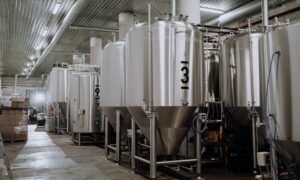In a recent study by RethinkX, the global independent think tank has predicted that alternative protein created using the process of precision fermentation will result in the fall of meat and dairy industries by 2030, and eventually make them bankrupt.
Alternative protein segment is making strides across the world, especially after the coronavirus pandemic that highlighted the connection between animal agriculture and the spread of zoonotic diseases. Environmental organisations too have voiced their concern over the unsustainability of industrial animal agriculture. It is not just cruel to animals but also contributes heavily to global warming and environmental degradation. A switch to alternative protein is therefore being seen as the need of the hour.
Alternative protein could be of three types – plant-based, cultivated and fermented. As the name suggests, plant based protein is made from plant sources, like pulses, soy, nuts, seeds, peas and grains. Cultivated or lab-grown protein has also been grabbing spotlight, especially after the much-hyped green signal given by Singapore government to Eat Just for selling its lab-grown meat commercially. The third type – protein made using precision fermentation – is however being seen as the future of protein.
What is Precision Fermentation?
Precision fermentation or microbial fermentation, a process often used in making of craft beer, involves brewing single-celled organisms or microbes in a liquid environment to get a protein source that could replicate the texture and taste of meat. It enables production of huge quantities of protein sans the pain, cruelty and suffering that farm animals have to endure. Food technologists predict that precision fermentation has the potential to transform the way we consume protein today; it can bring in a revolution! As there would be no requirement for animals in the fermentation process, the risk of zoonotic disease transmission to humans would also be eliminated.



Companies such as Impossible Foods and Clara Foods are using this technology to create mock meat for their burger and egg protein respectively. Solar Foods is another company that is using fermentation to make protein using ingredients from the environment. The technology is being tested by several other companies too, but most of it is concentrated in the west. A report by Goof Food Institute stated that fermentation companies devoted to alternative proteins received more than $274 million in venture capital funding in 2019, and $435 million in the first seven months of 2020, even as Covid-19 disrupted global markets. It clearly shows how promising the segment is.
While fermentation in itself is not a new process, precision fermentation to extract protein is, and requires more investment and research to create high quality proteins that have the same texture and taste as that of animal-derived protein.
Need for Alternative Protein
Today, industrial farming presents major challenges for both the environment and the government. Massive tracts of forest lands are being cleared to create grazing fields for livestock and setting up of industrial dairy farms and slaughterhouses. According to the World Economic Forum, “To meet future demand for protein and ensure food systems are inclusive, efficient and sustainable, we must invest in alternative and plant-based proteins. Our global food system is not fit for purpose. Current food production methods and consumption patterns endanger the health of the public and of the planet.”
Today’s production systems will fail to keep up with the increasing demand for high protein foods, and therefore, will not meet the targets of the Sustainable Development Goals 2030. Creating a sustainable global food system is the need of the hour, and it is imperative that we change the way food is produced.


